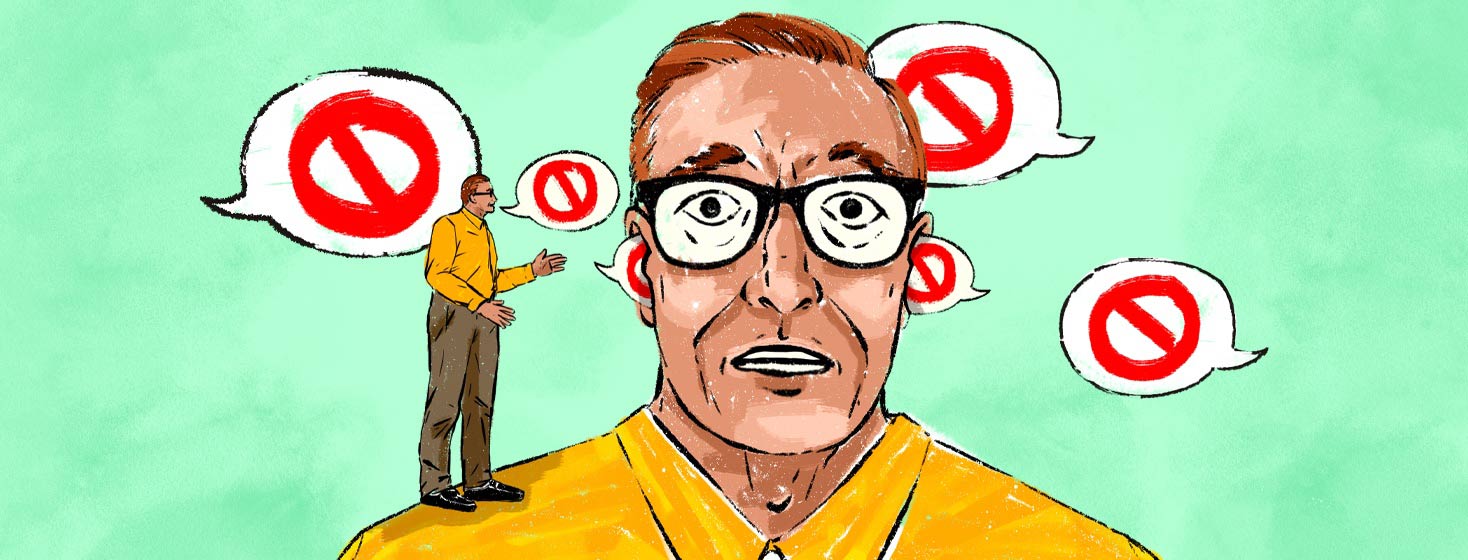The Voice Saying, "It’s Not Real"
Being diagnosed with NMO, I’m sure we've all felt and heard from our peers that what was happening to us wasn’t real. For lack of a better phrase, everyone thinks you’re crazy. When your body is attacking you from the inside out, how do you express that other than with your words? If people can’t believe you, there isn’t much “proof” of the pain of an NMO attack.
But have you ever leaned into that thought a little too much?
NMO, the invisible illness, has taken a toll on my mental health
In my experience, I’ve been told too often that I was faking it. What’s even worse is I started to believe that too. This mindset ended up causing me to suppress my symptoms and not tell anyone when something was wrong.
Hiding my NMO symptoms
And then, it got to the point where I needed to go in an ambulance or be taken to the ER. It’s that little voice that constantly tells me my NMO is not real. Others shutting you down is one thing, but shutting yourself down adds to the pain.
The weight of an invisible illness
I’ve had some pretty significant counseling in regard to my diagnosis. However, I think there’s a small part of me that will always feel as though none of this is real. Still, every time I get sick or get a new diagnosis, it’s just like that feeling all over again.
The feeling of everybody telling me that my headache was just a headache. They would say things like I was doing this to get attention.
All the while, I was paralyzed and blind in the ICU.
Listening to my body: This struggle is real
To this day, I struggle with not wanting to listen to that voice. I always think to myself how funny it is that if I was truly faking, it wouldn’t really be possible to fake blood tests, MRIs, or vision tests. In my right mind, of course, the answer is no! But again, that voice telling me my NMO is not real is so strong and powerful. A lot of the time, I've diminished my own symptoms because I thought they were not that big of a deal.
We should make the rare disease community feel that they don't have to diminish symptoms or lessen their pain.
Advocating that though NMO is an invisible illness, it's real
This is why we advocate. Advocacy allows us to speak on our truth and experiences. The more people that are aware of how big the rare disease community is, we'll allow a spotlight on invisible illnesses like NMO and how little people know.
Sharing my story was hard at first
When I first started sharing my story, I was so embarrassed. Who wants to talk about bowel and bladder issues as a young adult? It can be uncomfortable to talk about the true physical and mental distress we are constantly in.
My words of wisdom
One thing I always advise newly diagnosed NMO patients? Don’t be afraid to feel. You aren’t complaining if you’re in pain. You aren’t making up your pain. It’s every bit as real as you feel.
Tools to share your story
One thing that’s helped me is journaling or doing video diaries. Start a social media page to document your journey and the pain you feel. You never know who you can help by talking about the hard stuff.

Join the conversation